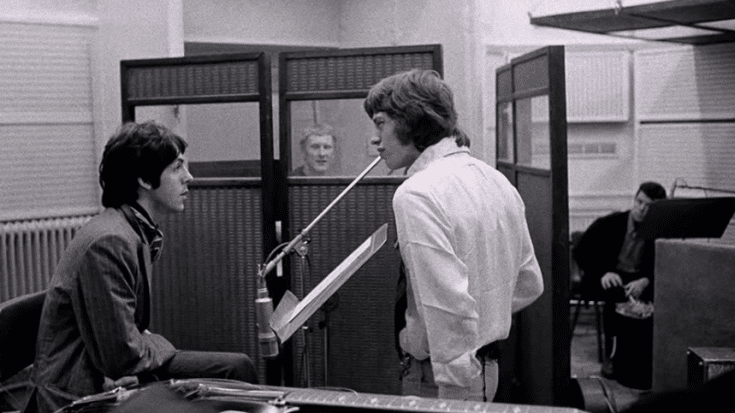On This Day in 1966: Rubber Soul Hits #1—Paul McCartney Revealed It Was Inspired by Mick Jagger

via Elena the Beatles photos / YouTube
On February 26, 1966, The Beatles’ album “Rubber Soul” climbed to #1 on the Billboard Hot 200, marking the band’s seventh chart-topping album in the US. This album marked a significant evolution in the band’s musical style, showcasing more complex lyrics and diverse musical influences. Interestingly, the title Rubber Soul was inspired by a comment about Mick Jagger.
Inspiration Behind Rubber Soul
In the 2000 book Anthology, Paul McCartney recalled reading about an old American bluesman who had offered an opinion on Jagger and The Rolling Stones’ appropriation of the blues. McCartney explained:
“I’d just read about an old bloke in the States who said, ‘Mick Jagger, man. Well, you know they’re good—but it’s plastic soul.'”
This remark led McCartney to coin the term “rubber soul,” reflecting The Beatles’ playful acknowledgment of their own take on soul music.
View this post on Instagram
Rubber Soul, released on December 3, 1965, was The Beatles’ sixth studio album. It signified a departure from their earlier pop sound, incorporating folk, soul, and even Indian music elements. The album featured classic tracks like “In My Life” and “Nowhere Man,” which showcased the band’s growing lyrical depth and musical experimentation. George Harrison later referred to Rubber Soul as his favorite Beatles album, highlighting its significance in their discography.
The Evolutionary Impact and Aesthetic of Rubber Soul
The album cover also reflected this new direction. It featured a stretched-out photo of the band with bubble lettering, giving it a distinctive look that matched the innovative music within. This visual presentation complemented the album’s title, further emphasizing The Beatles’ evolving artistic identity.
The success of Rubber Soul was not just a commercial milestone but also a cultural one. It demonstrated The Beatles’ ability to grow as artists and push the boundaries of popular music. The album’s influence extended beyond its immediate success, inspiring countless musicians and contributing to the evolution of rock music.
In retrospect, Rubber Soul stands as a testament to The Beatles’ willingness to experiment and evolve. The inspiration drawn from Mick Jagger’s “plastic soul” comment showcases the interconnectedness of artists and genres during this transformative period in music history.













